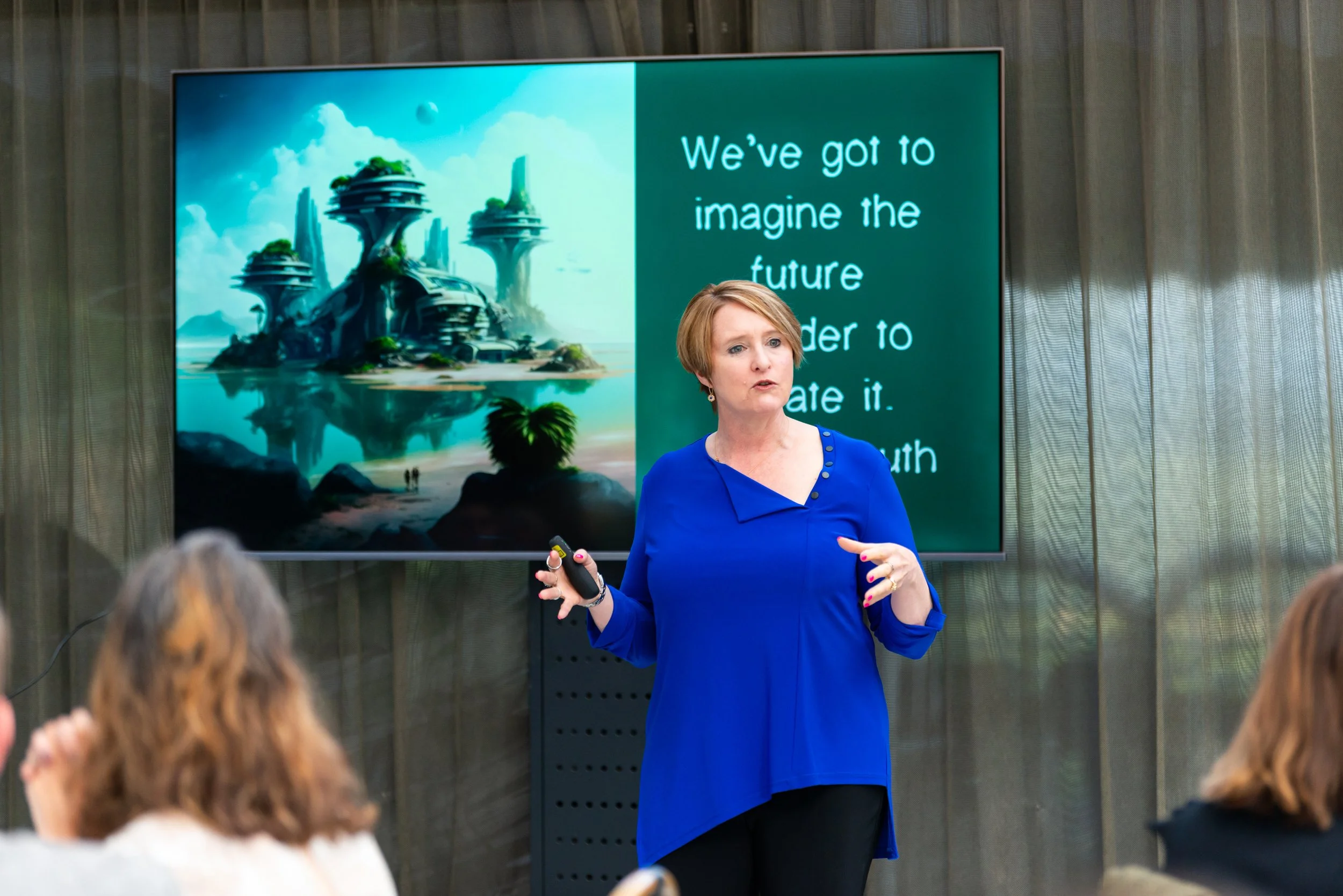I’ve read over 150 books per year for the last couple of years. At first I thought it was a fluke, but then I realised I just read a lot. Most leaders I work with know they *should* read more, but just don’t. Lots of reasons why not.
So I thought I’d share how I do it so you can hack your reading too.
Tip 1: Why read
I love reading. I read for pleasure: for fun, escapism, to have my imagination sparked. I also read to learn. I do this through fiction and nonfiction. Fiction teaches me about other worlds - be they historical or future focused. Non-fiction gives me new insights and tactics on topics that are relevant to my work: leadership, futurism, power, and writing.
So, be clear on why you want to read as this will help narrow your focus.
Tip 2: Narrow your reading focus
There are so many books out there it can be too overwhelming to choose. Leaders often abandon reading because they simply don’t have the energy or time to muster to pick something.
My brain gets attracted to LOTS of topics, so I’ve made it easier for myself to narrow my reading to a handful of topics each year. The aim is to keep my ‘to be read’ (TBR) pile under control.
The topics I filter for are:
Science fiction/speculative fiction/climate fiction (the genre I am currently writing fiction in)
Historical fiction: specifically Ancient Roman, or World War II spy thrillers
Leadership - specifically about power and ethics as research for my own next nonfiction book
Writing craft - to improve my writing
Bonus serendipity - I’ve allowed myself this category to capture the big name popular books when they appear in the e-library.
So, add some criteria for your reading list.
Tip 3: Get others to curate a reading list for you
There are over 3000 books being published EACH DAY. You just can’t stay across all that. Get recommendations tailored to your interests (see Tip 2).
Use chat-GPT to give you book recommendations based on your criteria.
Follow Next Big Idea Club for great nonfiction titles.
Tip 4: Listen to audiobooks
I spend a bit of time at the gym and driving. I use that time to listen to books. It’s amazing how many titles you can work your way through!
Also, you can train yourself to listen at a faster playback speed. I currently listen to most titles at 1.7x speed. Last year I listened to War and Peace, 60 hours of regular speed audio in a month.
I probably listened to about 20 titles last year. I use Audible and Spotify for audiobooks - both are subscription models. And I also listen to library audiobooks on Borrow Box for free.
Tip 5: Nonfiction tips
I learned these tips from Matt Church.
Read the synopsis of the book (back cover).
Study the chapter headings to get a sense of the structure of the book.
Read the subheadings of each chapter, and if relevant/interesting, read the section in full, or just move to the next header.
Read the summary of each chapter (usually at the end of each chapter).
If it’s really good, go ahead and read the case studies/stories, otherwise I usually skim these.
Tip 6: Fiction tips
Use the DNF (did not finish) option liberally.
Life is too short to read books that don’t resonate with you. You have no obligation to finish a book because you started it. Trust me, authors only want readers who want to read their stuff, so give up your reading guilt.
Also, if you hit a boring patch in a book, skim over it! You don’t have to read every single darn word, especially if it’s making you yawn.
Tip 7: Track your reading
Goodreads tracks all my reading and reviews. It is satisfying to see all the reading journeys I’ve taken over the years. It’s also fun to go back and remind myself of the books that really made a difference to my life - because they were enjoyable or shifted my thinking in some way.
To read 150 + books per year, that averages about three per week. I’ll usually get one of them done through an audiobook, and one to two fiction or nonfiction books. But if I’m busy it will be less. I don't get hung up on it. Reading adds richness to my life, and I am careful not to treat it like just another task on the list.
Happy reading!
Zoë Routh is a leadership futurist, podcaster, and multiple award-winning author. She works with leaders and teams to explore what's coming and what it means for leadership of the future.
She has worked with individuals and teams internationally and in Australia since 1987. From wild Canadian rivers to the Australian Outback, and the Boardroom jungles, Zoë is an adventurist! She facilitates strategy and culture for the future with audacious teams.
Zoë's fourth leadership book, People Stuff - Beyond Personality Problems: An advanced handbook for leadership, won the Book of the Year at the Australian Business Book Awards in 2020. Her fifth book is a leadership futurist science fiction dystopian novel, The Olympus Project.
Zoë is the producer of the Zoë Routh Leadership Podcast, dedicated to asking “What if…?” and sharing big ideas on the Future of Leadership.
Zoë is an outdoor adventurist and enjoys telemark skiing, has run 6 marathons, is a one-time belly-dancer, has survived cancer, and loves hiking in the high country. She is married to a gorgeous Aussie and is a self-confessed dark chocolate addict.


